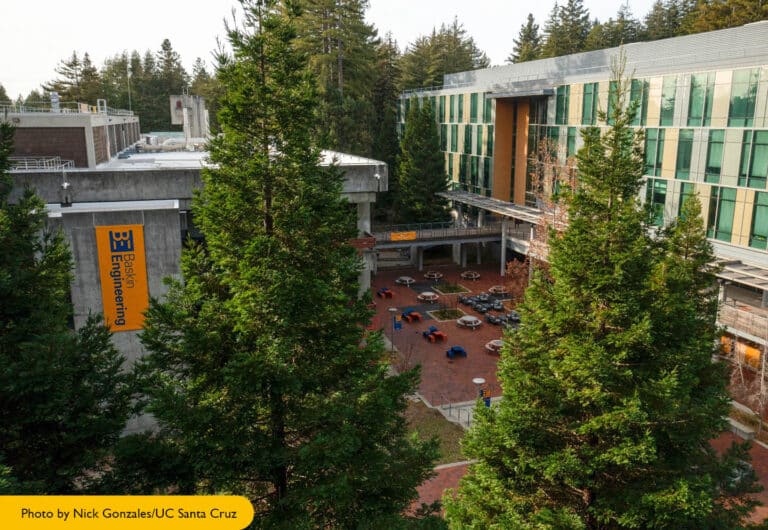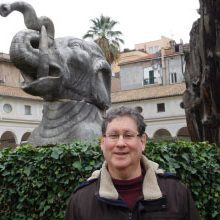Open Source Sustainability at the University of California

One of the largest networks of universities in the world, the University of California (UC), is undertaking a major effort to increase its use and production of free and open source software. Central to this effort is the concept of an Open Source Program Office (OSPO), now becoming more popular at universities, corporations, and governments alike. To understand this OSPO initiative, I spoke with Stephanie Liegg (Figure 1), who is coordinating the UC effort as executive director of the OSPO at UC Santa Cruz, as well as their research center, the Center for Research in Open Source Software (CROSS).
The Many Roles of an Open Source Program Office
Open source is a movement, a mindset, a community, a legal definition, and many other things. Organizations need to evolve on many dimensions at once in order to use and create open source software. Furthermore, open source concepts also apply to research data, textbooks, documents, and other forms of information. All these aspects of openness can be enhanced by a department of experts in open source who reach out to all parts of the university or other institution to provide support and guidance.
Companies started several years ago to create OSPOs, which provide guidance at every level of open source:
- Identifying outside resources—such as software libraries and tools—that the organization can benefit from
- Ensuring compliance to licenses and other requirements, such as documenting software’s use
- Identifying software, research materials, data, and other resources inside the institution that could be released under an open license
- Educating staff and stakeholders about the value, risks, and processes of open source
- Helping projects become sustainable—the major challenge faced by nearly every open source project, including some major ones
- Promoting an understanding and appreciation for the general concepts of open source
A book chapter summarizes the history and goals of an OSPO.
OSPOs at the University of California
Universities are getting into the OSPO space too, many with the help of the Alfred P. Sloan Foundation. Sloan has so far funded OSPO pilot efforts at 12 US universities, including the UC Santa Cruz. Part of the UCSC project’s goal was to expand the approach to others in the UC system.
The UCSC team has been working together with groups from five other UC campuses (Berkeley, Davis, Los Angeles, San Diego, and Santa Barbara) to create a network of OSPOs that will share resources and provide guidance from experts at each campus to the others. Documents they produce for guidance will also be published openly for anyone to use. The network also aims to create an open source repository browser (ORB) that helps campuses identify local open source efforts and that provides data to external stakeholders interested in supporting open source research.
Note that an OSPO is not necessarily responsible for teaching students how to use Git, administer Linux systems, code in Python, or other such technical tasks. That is typically the responsibility of computer science departments. However, OSPOs can coordinate with departments to design effective programs teaching open source skills. The OSPOs can also help students who want to create an open project.
The current UC plan is divided into three major areas they call “themes”: Discovery of campus and UC-wide open source landscapes, Education (training, development and mentorship), and Sustainability.
“Sustainability has been emphasized by CROSS since its founding at UCSC in 2015,” says Lieggi. CROSS was covered a few years ago in an LPI blog posting. Students who start software development projects are encouraged and trained to reach out to software communities and recruit other developers. (See Figure 2 for the engineering building.)
Figure 2. Baskin Engineering building (Photo by Nick Gonzales/UC Santa Cruz)
The most successful open source project coming out of UCSC, Ceph, is well-known in the Linux community and central to many cloud environments. Lieggi says, “Building on the success of Ceph, CROSS has worked with industry and other funders to support other open source projects and expand their communities.”
At Santa Cruz, the OSPO is starting as a project of CROSS, but will become independent. The OSPO at each campus can also evaluate the health of an open source project, which is key to determining whether it is sustainable and what work is required to make it so. The OSPOs can support workshops, hackathons, and other events to raise campus awareness around open source and engage the students and faculty. Mentorship and community building are also goals.
Lieggi concludes, “The UC OSPO network collaborators are looking to kick off their efforts this Spring and begin cooperating on action toward practical goals by the beginning of the next academic year. They also hope to bring all ten UC campuses into the network within the next two years.”
